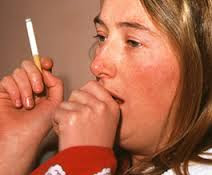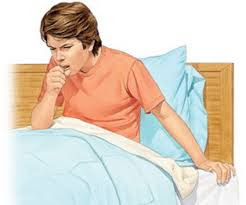Chronic Cough Definition in Children Differential Diagnosis
It is normal to cough occasionally. Coughing with a cold, flu or allergies is normal.
Allergists have particular expertise in allergic rhinitis (or hay fever) and sinus infections, which may contribute to postnasal drainage, a common cause of chronic cough. Allergists are also experts at diagnosing and treating asthma, which may be present in 25% of patients with chronic cough. Cough from asthma may be associated with wheeze, shortness of breath or chest tightness and may be worsened by colds, exercise, smoke exposure and laughter, among other things. In addition, allergists are experienced in dealing with GERD, or heartburn, which may produce cough.
When to see an allergist:
• If you have a cough that lasts more than eight weeks.
• If your cough is associated with symptoms of asthma.
• If your cough is associated with nasal symptoms or tobacco use.
• If your cough is severe and affecting your quality of life.
The differential diagnosis of chronic cough in children includes subacute and chronic infections (eg, bacterial bronchitis, pertussis, mycoplasma, and tuberculosis), foreign body aspiration, and cough-dominant asthma Gastroesophageal reflux, upper airway cough syndrome (formerly known as postnasal drip syndrome), and sinusitis are sometimes implicated because of associations with chronic cough in adults, but their role in causing chronic cough in children is controversial. Less common disorders must be excluded if the cough is unusually severe and/or frequent, or when there is evidence of failure to thrive, growth retardation, purulent sputum, exertional dyspnea, hypoxemia, chest pain, or hemoptysis. (See "Causes of chronic cough in children".)
Coughing has a purpose. It is your body’s way of keeping unwanted stuff from getting into your lungs. Coughing helps clear extra mucus from your airways (small tubes in your lungs). This extra mucus could be caused by smoking, a cold, nasal or sinus problems, a lung infection or a lung disease, like asthma or COPD.
Chronic Cough Definition
A cough may be caused by a condition not related to your lungs, such as heartburn, some medications, or throat irritants (for example, dust, pollution, chemicals in your workplace or home).
Coughing is not normal if you are coughing up blood or thick mucus. If your cough makes you very tired, or light-headed, or causing chest or stomach pain, or causing you to “wet” yourself, you should talk to your doctor to find out the cause.
What are the different types of cough?
Doctors divide coughing into three groups, based on how long the cough has lasted. There are three types: acute (coughing less than 3 weeks), sub-acute (coughing 3-8 weeks), or chronic (coughing longer than 8 weeks).
Allergists have particular expertise in allergic rhinitis (or hay fever) and sinus infections, which may contribute to postnasal drainage, a common cause of chronic cough. Allergists are also experts at diagnosing and treating asthma, which may be present in 25% of patients with chronic cough. Cough from asthma may be associated with wheeze, shortness of breath or chest tightness and may be worsened by colds, exercise, smoke exposure and laughter, among other things. In addition, allergists are experienced in dealing with GERD, or heartburn, which may produce cough.
When to see an allergist:
• If you have a cough that lasts more than eight weeks.
• If your cough is associated with symptoms of asthma.
• If your cough is associated with nasal symptoms or tobacco use.
• If your cough is severe and affecting your quality of life.
The differential diagnosis of chronic cough in children includes subacute and chronic infections (eg, bacterial bronchitis, pertussis, mycoplasma, and tuberculosis), foreign body aspiration, and cough-dominant asthma Gastroesophageal reflux, upper airway cough syndrome (formerly known as postnasal drip syndrome), and sinusitis are sometimes implicated because of associations with chronic cough in adults, but their role in causing chronic cough in children is controversial. Less common disorders must be excluded if the cough is unusually severe and/or frequent, or when there is evidence of failure to thrive, growth retardation, purulent sputum, exertional dyspnea, hypoxemia, chest pain, or hemoptysis. (See "Causes of chronic cough in children".)


